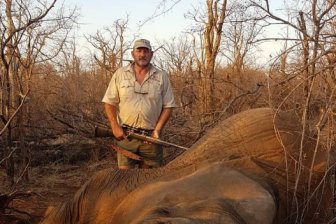The rapidly changing coronavirus has spawned another super-contagious Omicron mutant that worries scientists as it gains ground in India and appears in many other countries, including the United States.
Scientists say the variant, called BA.2.75, can spread rapidly and bypass immunity from previous infection and vaccines. It is unclear whether it could cause more severe disease than other Omicron variants, including the globally prominent BA.5.
“It’s still too early to draw too many conclusions,” said Matthew Binnicker, director of clinical virology at the Mayo Clinic in Rochester, Minnesota. “But it seems that, especially in India, the transmission rates are showing a kind of exponential increase.” Whether it will outperform BA.5, he said, has yet to be determined.
Read more:
Shanghai officials say a new Omicron BA.5 sub-variant was found in the city
Still, the fact that it has already been detected in many parts of the world with even lower levels of viral surveillance “is an early indication that it is spreading,” said Shishi Luo, head of infectious diseases at Helix, a company that supplies viral sequencing. information to the US Centers for Disease Control and Prevention.
The latest mutant has been seen in several distant states in India and appears to be spreading faster than other variants there, said Lipi Thukral, a scientist at the Council for Scientific and Industrial Research at the Institute of Genomics and Integrative Biology in New Delhi.
It has also been detected in about 10 other countries, including Australia, Germany, the United Kingdom and Canada. Two cases were recently identified on the US West Coast, and Helix identified a third case in the US last week.
Expert concerns are fueled by a host of mutations separating this new variant from Omicron’s predecessors. Some of those mutations are in areas related to the spike protein and could allow the virus to bind to cells more efficiently, Binnicker said.
Another concern is that the genetic tweaks may make it easier for the virus to evade antibodies, protective proteins produced by the body in response to a vaccine or infection from an earlier variant.
But experts say vaccines and boosters remain the best defense against severe COVID-19. In the fall, updated formulations of the vaccine targeting the newer strains of Omicron are likely to be developed in the US.
“Some may say, ‘Well, vaccination and boosting haven’t stopped people from getting infected.’ And yes, that is true,” he said. “But what we have seen is that the rates of people ending up in the hospital and dying have dropped significantly. As more people have been vaccinated, boosted, or naturally infected, we are starting to see immunity levels rise around the world.”
It may take several weeks to get a sense of whether Omicron’s latest mutant may affect the trajectory of the pandemic. Meanwhile, Dr. Gagandeep Kang, who studies viruses at the Christian Medical College of India in Vellore, said growing concern about the variant underscores the need for more sustained efforts to track and trace viruses that combine genetic efforts with information from the world. about who is getting sick and how sick. “It’s important that surveillance is not a start-stop strategy,” he said.
Read more:
17 million Canadians received Omicron in 5 months, according to a new federal report
Luo said BA.2.75 is another reminder that the coronavirus is continuously evolving and spreading.
“We would like to go back to pre-pandemic life, but we still have to be careful,” he said. “We need to accept that we now live with a higher level of risk than before.”
© 2022 The Canadian Press



